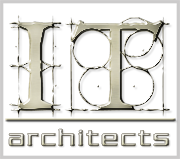Ade Odusote, Senior Domain Architect
Bob Ivkovic, Principal of IT Architects
May 22, 2018
While an Enterprise Architect leads the development of a single holistic enterprise architecture model for the whole of the organization (from all architecture perspectives including Business Services, Business Processes, Information, Applications, and Technology), a Solution Architect provides a bridge between specific business problems and issues and the solutions which are needed to support them. Just when you thought you had all your architecture resource needs covered, someone comes along claiming to be a Domain Architect. So, who are these domain gurus and what makes them so special? Domain Architects are specialists with in-depth knowledge within a particular domain of expertise. The word “domain” is used to relate to the skill sets required for a niche area of knowledge.
Domain Architects are usually hired because they possess specialized skills and expertise targeted for a specific innovation or differentiated solution requirement. They can be part of an Enterprise or Solution Architecture Team, or hired directly by a Project Delivery Team to support the architecture needs of a proposed solution. Examples of Domain Architect roles include:
• Access Services Architect
• Integration Services Architect
• Data Services Architect
• Infrastructure Services Architect
• Process Re-engineering Architect
• Domain Expert for a COTS Application (e.g. SAP, Oracle, Salesforce, etc.)
• Business Architect with business specific knowledge (e.g. Natural Gas Trading)
Domain Architect: Bridge between Enterprise and Solution Architecture
Don’t get me wrong, the Domain Architect is not a one-man show. The Domain Architect can act as a bridge between Solution and Enterprise Architecture. The Domain Architect bridges between specific business issues and the solutions that are needed to resolve them. The Domain Architect is both a Business and Project facing role.
The Domain Architect interacts with the Enterprise Architect, providing insight to the EA on business issues and solutions needed to resolved them, while receiving guidance from the EA on an alignment of these solutions to strategic technology roadmaps. Furthermore, the Domain Architect interacts with the Solution Architect, who is part of a project team implementing a specific business solution for the Domain. The SA will ensure the technical integrity of the Solution, while the Domain Architect ensures that the project architectures meet business requirements and is compliant with the target Enterprise Architecture blueprint and strategy.
The Domain Architect possesses a wide breadth of knowledge on how various technological components work together to deliver the desired functionality, understand the technology roadmaps and are intimately knowledgeable on the current and planned future state of the suite of applications and related technologies applicable to their business domain. Every business domain has a tactical solution in place to meet its business needs. The Domain Architect’s role is to ensure these solutions continue to be relevant to the business needs. The Domain Architect typically interacts with the business domain through the Business Director or Sponsor to ensure business/ technology alignment. The Domain Architect also ensures alignment to strategic roadmaps through interactions with the EA.
Responsibilities of a Domain Architect
The Domain Architect has distinct responsibilities which are not necessarily assumed by Enterprise and Solution Architects:
• Act as the default Solution Architect and Technical Lead for all projects in their business domain. For large projects, the Domain Architects delegate these responsibilities to project-based SAs, while providing technical oversight for these SAs.
• Interact closely with Program Managers to define the need for Solution Architecture and innovative technologies on program change initiatives (usually projects).
• Provide Solution Architecture consultation and guidance to Program Managers in early program phases.
• Understand requirements as it relates to the program initiative and how a defined set of projects are organized to deliver those requirements.
• Understand how changes in EA direction affect Solution Architecture on their domain, and alter guidance of project SAs accordingly.
• Mentor and guide Solution Architects in their domain, to ensure consistent and appropriate Solution Architecture is developed and consistent artifacts are produced.
• Identify and evaluate program risks and participate in defining mitigation and control activities.
• Develop and maintain an overall Domain Architecture. Integrate project solution architectures into the as-is Domain Architecture for future baseline references.
• Conduct continuous improvement analysis on existing application and infrastructure technologies and its ability to support the business requirements, and feedback to Enterprise Architecture and/or work intake processes.
• Cultivate and disseminate knowledge of application-usage best practices.
• Accountable for inter-project technical direction and decisions within their domain.
Qualifications of a Domain Architect
The Domain Architect is a senior-level consulting professional who analyzes customer business requirements and strategy to develop future state architecture to meet customer objectives. This individual combines a deep understanding of technology, industry best practices, multiple business processes and architectural patterns to develop optimal solutions for customers. The Domain Architect collaborates with the license and consulting sales team to design innovative solutions that have industry-wide impact. As a position of technical and professional influence, this individual must be fluent in leading edge of technology and have extensive experience in all aspects of technology including but not limited to business applications, middleware, database technology, business intelligence, security technology and best practices, storage architecture, and hardware architecture. This individual must be effective at communicating to C-level management as well as highly technical resources. Solid experience presenting ideas and solutions to peers, directors and executive level colleagues, including the CIO, is a required Domain Architect trait. The Domain Architect must embrace new and emerging technologies and be abreast of what is going on in the industry, and make appropriate solution recommendations. As an architect, this individual must have the ability to read and understand Functional Requirements and Specifications and create process/data flow diagrams on how solutions work and systems interconnect based on conversations and descriptions with business users.
The Domain Architect deals with business and technology strategy and direction just as much as delivering an optimal solution that meets business needs. Similar to an Enterprise Architect, this individual is focused on continuously looking ahead, and developing roadmaps, reference models, and architecture standards. Maybe this explains what this individual is ideally an employee and sticks around for the long term. The Domain Architects answers the following questions:
• Where is my Business domain heading in the next 2 – 5 years?
• What information and systems need to be in place to help them get there?
• How can IS equip them with the right information and systems to enhance their productivity?
Responsible for Application, Information and Business Architectures for their domain, the Business will specify their strategy in alignment to the overall Organization’s strategy, while the Domain Architect will ensure IT alignment via the IT roadmaps. The Domain Architect is instrumental in creating architecture guidelines and artifacts for initial System Delivery Life Cycle phases a project. And of course, the Domain Architect has key interactions with the Business Director or Sponsor, EAs, and Solutions Architects. The scope of engagement for solution delivery is too extensive for an article like this, but if you want a complete list, just drop us a line. The Domain Architect is a special breed of architect with many talents.
Mr. Ade Odusote is a Senior Domain Architect with IT Architects in Calgary, Alberta, and Mr. Bob Ivkovic is a Principal with IT Architects. IT Architects (www.itarchitects.ca) is an information consulting firm specializing in business process optimization, system evolution planning, and the deployment of leading-edge technologies. If you require further information, Ade and Bob can be reached at info@itarchitects.ca or 403-630-1126.


